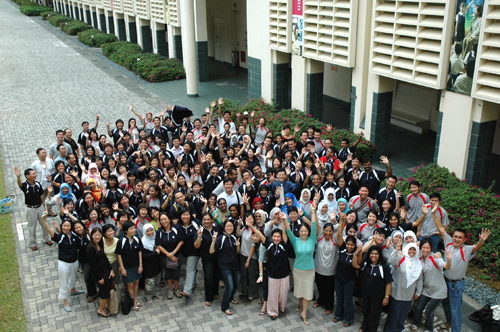
Parte 3 di “In Search of Professionals”
In their new book, Capitale professionale: Trasformare l'insegnamento in ogni scuola, Andy Hargreaves and Michael Fullan remind us that the future of learning depends on the future of teaching. Speaking out against education policies that result in a teaching force that is inexperienced, underpaid and exhausted, Hargreaves and Fullan set out a new agenda to transform the future of teaching and public education.
Singapore is recognized globally as a high performing education system with professional practices that could be adopted by other education systems seeking to improve the capabilities of their principals, teachers and overall leadership. Gli studenti di Singapore cavata molto bene nel 2009 Programma per la valutazione internazionale degli studenti (PISA). Fuori da 65 paesi che hanno partecipato in questi test, Gli studenti di Singapore al quinto posto nella lettura, secondo in matematica e quarto nella scienza. Singapore ha avuto anche la seconda percentuale più alta (12.3%) of students who are top-level performers in all three domains.
How does Singapore view the importance of a world-class teaching profession? How has its government responded? What progress has been made to date? What are Singapore’s next steps to advance the teaching profession in the 21st century?
Oggi in parte 3 di “Il Global Ricerca per l'Educazione: In Search of Professionals – Singapore,” we are honored to share the insights of Dr. PAK NG – Associate Dean, Learning Leadership, Ufficio di Dottorato e di apprendimento professionale, e Capo e Professore Associato, Politica e Leadership Studies Group Accademico, presso l'Istituto Nazionale di Educazione, Nanyang Technological University, Repubblica di Singapore.
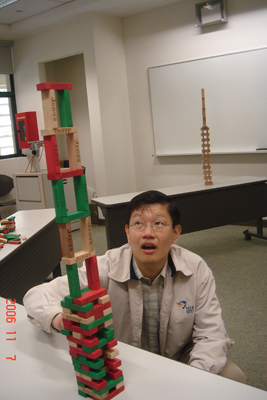
What are your views on the importance of teaching quality and the importance of a world-class teaching profession to a successful education system for your nation?
The Singapore education system relies on a high quality teaching profession to achieve its aim for the nation. While it is important for the government to formulate good education polices, the success of these polices relies on the implementation by the teaching professionals in the schools. Policies are important for they point the direction and provide the support for change. But the substance of change is dependent on the teachers and school leaders in our schools. One of my main roles is to develop school leaders in Singapore. I often say to the school leaders, “students do not experience policies. They experience teachers.” Pertanto, our school leaders need to nurture teachers. Singapore takes teaching quality and the development of a professional cadre of teachers very seriously.
What decisions and actions did your government take with respect to building teaching quality and the teaching profession, e quando?
A Singapore, teachers are hired by the Ministry of Education and deployed to schools after their teacher preparation programme at the National Institute of Education (NON). Alcuni 80% of Singapore’s 31,000 teachers today are graduates, a significant increase from 55% slightly more than a decade ago. The government intends to move towards all-graduate teacher recruitment by 2015 and seeks to recruit only from the top one-third of every cohort of students. Our teaching force is set to expand to 33,000 di 2015 and the government has put in place supporting structures to encourage teachers to acquire post-graduate degrees. We hope to enhance our teaching force, both in terms of numbers and quality.
NIE’s teacher preparation premises itself strongly on a set of values (V), competenze (S) and knowledge (K), encapsulated in a model called the V3SK framework. This framework represents the underpinning philosophy of teacher development in NIE for the Singapore teacher. In particolare, our set of values is premised on 3 paradigms: learner-centeredness, teacher identity, e il servizio alla professione e la comunità. Sottolineiamo valori molto forte, perché sono i fari con cui gli educatori possono navigare i mari del cambiamento senza perdere la loro anima o la direzione.
Il governo ha anche messo in atto molte opportunità di sviluppo professionale per gli insegnanti, tra cui un programma di Mentoring strutturato per insegnanti principianti, lo sviluppo professionale continuo Modello in servizio degli insegnanti di perseguire gradi più elevati in modo flessibile, in-service programmes for various disciplines, and fully sponsored career milestone programmes for school leadership development (Per es. Leaders in Education Programme (LEP) for school principal-ship development and the Management and Leadership in Schools (MLS) programme for school middle leadership development).
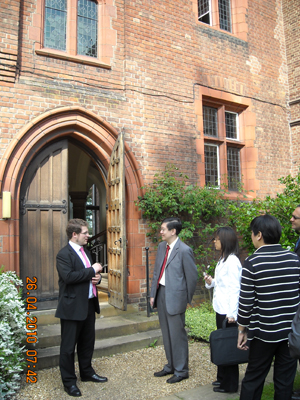
How do you assess your progress to date?
The Singapore education system has gone through different phases. We have made significant progress over the years. Alcuni 30 anni fa, teachers taught according to standard textbooks provided by the ministry. Oggi, teachers are expected to tailor education to suit their students and find breakthroughs in education practices, including curriculum, pedagogia, and assessment. Teachers now have enhanced career paths and remuneration, and teaching is a respectable profession in the country.
Ma, we still have a lot of room for improvement. What worked in the past may not work for the future. Pertanto, at this stage of our national development, our challenge is to develop our teachers so that they are able to review for themselves the “perché, what and how” of teaching. We are trying to shift the focus of our education from quantity to quality. Beyond stringent recruitment, enhanced career paths and better pay packages, it is the passion, commitment and professional ethos of our teachers that will enhance the quality of our education system. Così, our teachers need to continuously hone their teaching craft and deepen their content mastery. We are currently encouraging our teachers to participate actively in professional learning communities, engage in reflective practice, and undertake action research. This is still work in progress and is a long continuous journey.
What tangible benefits have you seen?
Many policy makers, school leaders and academics have visited Singapore and they told me that they were doing so because Singapore had very good PISA and TIMSS (Le tendenze in Matematica Internazionali e Scienze Study) results and they wanted to study the reasons for these results. I suppose results can be considered tangible benefits associated with a quality teaching force. Tuttavia, in some ways more importantly, a quality teaching force, trusted by the people, is a critical asset to the nation. Schools are generally seen as a safe environment for students to study and develop themselves. Infatti, Singapore is too small to afford failing schools or schools where safety and security are big question marks. Pertanto, schools provide a stable platform for values inculcation and national education. Because parents in general trust schools and the teachers, we have a basis on which different stakeholders can work together to improve educational outcomes for the students. Because different stakeholders have different viewpoints and expectations, working together is never a simple or clinical process, even though it is critical for the good of the students. Da qui, it is important to have a credible teaching profession that has the trust of the nation!
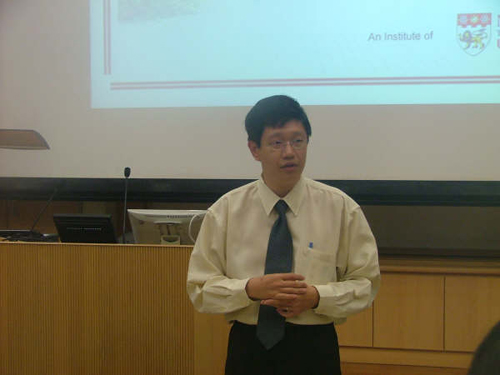
What additional steps or changes do you believe should be made or are you making in order to further advance the quality of teachers and the teaching profession going forward?
Singapore has a strong and robust education system, parlando in generale. It is a system recognized by many for its high level of student achievements. Tuttavia, we have to prepare our students for the future, not the past or the present. This may require fundamental educational reforms. We need teachers who can drive such change from within, rather than rely on central directions. Fundamental education reform requires schools to move beyond pre-specified performance indicators. Altrimenti, we may end up reinforcing the current system, which is adequate for now, but inadequate for the future. We need teachers and school leaders who can think about the future and scan the horizon for change, and yet keep connected to the present and work faithfully on the ground. Fare quello, we need to emphasize critical reflection for the teachers and school leaders, and empower them to challenge existing thinking and practices in their own schools. Looking for a fixed recipe of reform implementation in all schools will not work. Allowing more degrees of freedom at the local level will bring out the best in a mutually dependent and dynamic relationship between the ministry that sets the central direction and the educators who work on the ground. Instead of relying on top down directions, schools draw upon the expertise of the professional teaching community to search for solutions to issues that are close to their hearts. As practitioners explore ideas, implement them and make adjustments as they go along, the quality of the teaching profession is enhanced through the cycles of empowered practice and critical reflection. Change is also more organic within the schools. Our education system has begun to move in this direction, but this is a long process and we are doing it in a patient, calibrated manner. This process may actually increase the tension within the system because the system is no longer so neat and orderly. Ma, as long as we have dedicated and reflective teachers, we will be able to bring positive change out of the tension.
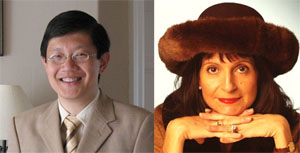
Foto per gentile concessione del dott. PAK NG
For more articles in the In Search of Professionals series: In Search of Professionals part 1, In Search of Professionals part 2
Nel Global Search per l'Educazione, unirsi a me e leader di pensiero di fama mondiale tra cui Sir Michael Barber (Regno Unito), Dr. Michael Block (Stati Uniti), Dr. Leon Botstein (Stati Uniti), Il professor Argilla Christensen (Stati Uniti), Dr. Linda di Darling-Hammond (Stati Uniti), Dr. Madhav Chavan (India), Il professor Michael Fullan (Canada), Il professor Howard Gardner (Stati Uniti), Il professor Yvonne Hellman (Paesi Bassi), Il professor Kristin Helstad (Norvegia), Jean Hendrickson (Stati Uniti), Il professor Rose Hipkins (Nuova Zelanda), Il professor Cornelia Hoogland (Canada), Sig.ra. Chantal Kaufmann (Belgio), Dr. Eija Kauppinen (Finlandia), Segretario di Stato Tapio Kosunen (Finlandia), Il professor Dominique Lafontaine (Belgio), Il professor Hugh Lauder (Regno Unito), Il professor Ben Levin (Canada), Il professor Barry McGaw (Australia), Shiv Nadar (India), Il professor R. Natarajan (India), Dr. Denise Papa (Stati Uniti), Sridhar Rajagopalan (India), Dr. Diane Ravitch (Stati Uniti), Sir Ken Robinson (Regno Unito), Professor Pasi Sahlberg (Finlandia), Andreas Schleicher (PISA, OCSE), Dr. Anthony Seldon (Regno Unito), Dr. David Shaffer (Stati Uniti), Dr. Kirsten Immersive Are (Norvegia), Cancelliere Stephen Spahn (Stati Uniti), Yves Theze (French Lycee US), Il professor Charles Ungerleider (Canada), Il professor Tony Wagner (Stati Uniti), Sir David Watson (Regno Unito), Professor Dylan Wiliam (Regno Unito), Dr. Mark Wormald (Regno Unito), Il professor Theo Wubbels (Paesi Bassi), Il professor Michael Young (Regno Unito), e il professor Zhang Minxuan (Porcellana) mentre esplorano le grandi questioni educative immagine che tutte le nazioni devono affrontare oggi. Il Global Ricerca per l'Educazione della Comunità Pagina
C. M. Rubin è l'autore di due ampiamente lettura serie on-line per il quale ha ricevuto una 2011 Premio Upton Sinclair, “Il Global Ricerca per l'Educazione” e “Come faremo a Leggere?” Lei è anche l'autore di tre libri bestseller, Compreso The Real Alice in Wonderland.



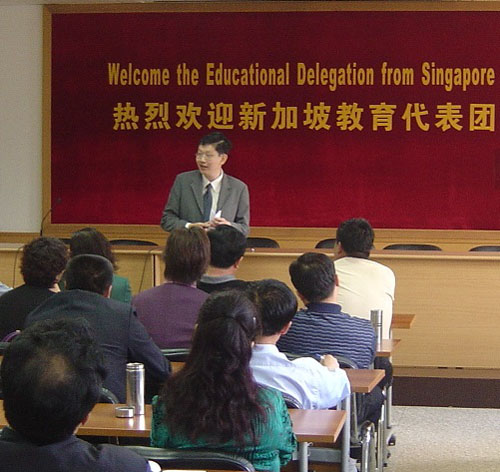
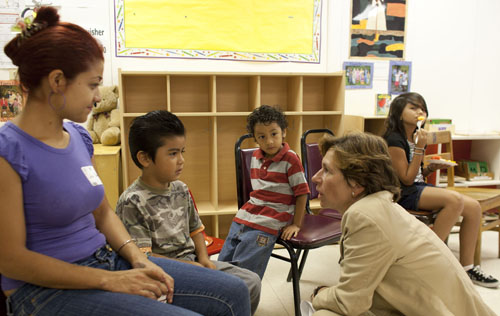
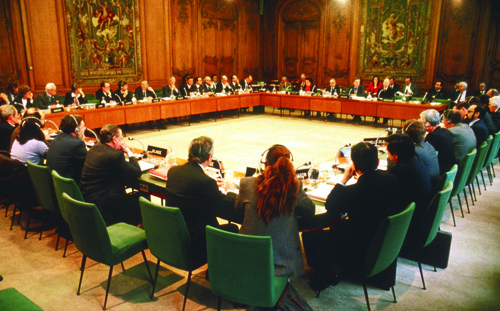
Commenti recenti